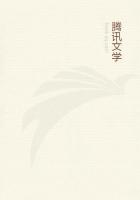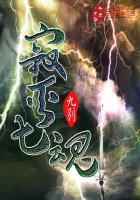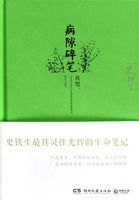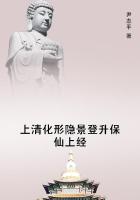Mr. Van Wyk, the white man of Batu Beru, an ex-naval officer who, for reasons best known to himself, had thrown away the promise of a brilliant career to become the pioneer of tobacco-planting on that remote part of the coast, had learned to like Captain Whalley. The appearance of the new skipper had attracted his atten-tion. Nothing more unlike all the diverse types he had seen succeeding each other on the bridge of the Sofala could be imagined.
At that time Batu Beru was not what it has become since: the center of a prosperous tobacco-growing dis-trict, a tropically suburban-looking little settlement of bungalows in one long street shaded with two rows of trees, embowered by the flowering and trim luxuriance of the gardens, with a three-mile-long carriage-road for the afternoon drives and a first-class Resident with a fat, cheery wife to lead the society of married estate-managers and unmarried young fellows in the service of the big companies.
All this prosperity was not yet; and Mr. Van Wyk prospered alone on the left bank on his deep clearing carved out of the forest, which came down above and below to the water's edge. His lonely bungalow faced across the river the houses of the Sultan: a restless and melancholy old ruler who had done with love and war, for whom life no longer held any savor (except of evil forebodings) and time never had any value. He was afraid of death, and hoped he would die before the white men were ready to take his country from him. He crossed the river frequently (with never less than ten boats crammed full of people), in the wistful hope of extracting some information on the subject from his own white man. There was a certain chair on the veranda he always took: the dignitaries of the court squatted on the rugs and skins between the furniture: the inferior people remained below on the grass plot between the house and the river in rows three or four deep all along the front. Not seldom the visit began at daybreak. Mr. Van Wyk tolerated these inroads. He would nod out of his bedroom window, tooth-brush or razor in hand, or pass through the throng of courtiers in his bathing robe. He appeared and disappeared hum-ming a tune, polished his nails with attention, rubbed his shaved face with eau-de-Cologne, drank his early tea, went out to see his coolies at work: returned, looked through some papers on his desk, read a page or two in a book or sat before his cottage piano leaning back on the stool, his arms extended, fingers on the keys, his body swaying slightly from side to side. When abso-lutely forced to speak he gave evasive vaguely soothing answers out of pure compassion: the same feeling per-haps made him so lavishly hospitable with the aerated drinks that more than once he left himself without soda-water for a whole week. That old man had granted him as much land as he cared to have cleared: it was neither more nor less than a fortune.
Whether it was fortune or seclusion from his kind that Mr. Van Wyk sought, he could not have pitched upon a better place. Even the mail-boats of the subsidized company calling on the veriest clusters of palm-thatched hovels along the coast steamed past the mouth of Batu Beru river far away in the offing. The contract was old: perhaps in a few years' time, when it had expired, Batu Beru would be included in the service; meantime all Mr. Van Wyk's mail was addressed to Malacca, whence his agent sent it across once a month by the Sofala. It followed that whenever Massy had run short of money (through taking too many lottery tickets), or got into a difficulty about a skipper, Mr. Van Wyk was deprived of his letter and newspapers. In so far he had a personal interest in the fortunes of the Sofala.
Though he considered himself a hermit (and for no passing whim evidently, since he had stood eight years of it already), he liked to know what went on in the world.
Handy on the veranda upon a walnut etagere (it had come last year by the Sofala--everything came by the Sofala) there lay, piled up under bronze weights, a pile of the Times' weekly edition, the large sheets of the Rotterdam Courant, the Graphic in its world-wide green wrappers, an illustrated Dutch publication with-out a cover, the numbers of a German magazine with covers of the "Bismarck malade" color. There were also parcels of new music--though the piano (it had come years ago by the Sofala in the damp atmosphere of the forests was generally out of tune. It was vexing to be cut off from everything for sixty days at a stretch sometimes, without any means of knowing what was the matter. And when the Sofala reappeared Mr. Van Wyk would descend the steps of the veranda and stroll over the grass plot in front of his house, down to the water-side, with a frown on his white brow.
"You've been laid up after an accident, I presume."
He addressed the bridge, but before anybody could answer Massy was sure to have already scrambled ashore over the rail and pushed in, squeezing the palms of his hands together, bowing his sleek head as if gummed all over the top with black threads and tapes. And he would be so enraged at the necessity of having to offer such an explanation that his moaning would be posi-tively pitiful, while all the time he tried to compose his big lips into a smile.
"No, Mr. Van Wyk. You would not believe it. I couldn't get one of those wretches to take the ship out.
Not a single one of the lazy beasts could be induced, and the law, you know, Mr. Van Wyk . . ."
He moaned at great length apologetically; the words conspiracy, plot, envy, came out prominently, whined with greater energy. Mr. Van Wyk, examining with a faint grimace his polished finger-nails, would say, "H'm. Very unfortunate," and turn his back on him.















